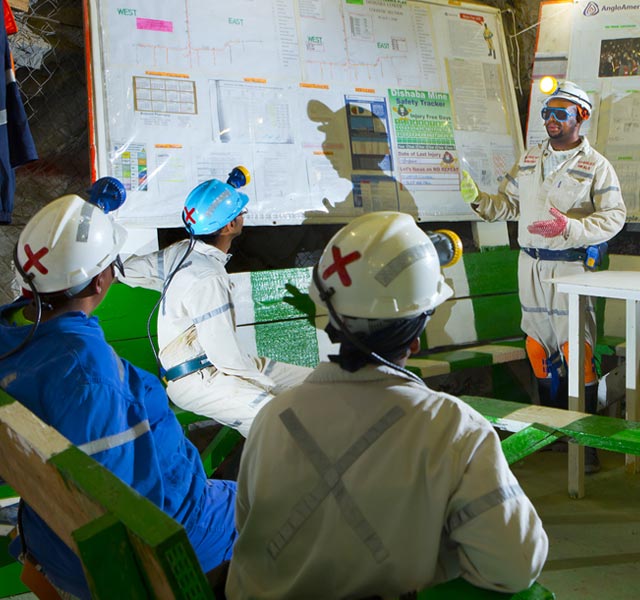The Minerals Council’s skills development team plays an important role in representing members’ interests in this critical area, and in engaging with government on the development and implementation of related legislation and policy. The Minerals Council plays a vital role in advocating and lobbying for the creation of an environment that enables the mining industry to develop skilled employees for advancement and deployment.
Critical team members
- Mustak Ally: Head: Skills Development
Context
There are many challenges associated with developing the skills needed for mining. Among others, a legacy of poor educational opportunities, a complex tertiary education and training landscape, and a poor basic education system have resulted in many employees having little or low levels of skills development. The national shortage of skills in all economic sectors accentuates the challenges associated with the retention of staff, and increases the demands for training and development in the mining sector. The skills development environment is also riddled with policy, regulatory and legislative requirements. Navigating these requirements and challenges can be resource-intensive and exhaustive to individual organisations.
The skills development team at the Minerals Council specialises in soliciting and consolidating stakeholder views, and lobbying, advocating and influencing these views to realise a skills development solution that is in the interests of all stakeholders. The Minerals Council is involved in all levels of skills development from adult education and training to operators, miners, artisans, technicians, professionals and managers. This encompasses theory training in technical vocational education and training (TVET) colleges, universities of technology and other universities, skills training in accredited training centres and workplace-based experience.
Key activities
- Engaging with the Mining Qualifications Authority (MQA) to translate mining sector skills demands into effective sectoral skills plans, to design and register qualifications, to maintain the quality of training, to give effect to the requirements of the Skills Development Act of 1998 and to maximise return on skills development levy investment.
- Participating in and influencing a tertiary education and training system that consistently delivers a sufficient number of graduates and highly skilled individuals to the mining industry.
- Influencing the policy and strategy of the development and quality assurance of occupational qualifications.
- Supporting the maintenance and improvement of a further education and training delivery system that is responsive, cost-effective and of high quality.
- Contributing to the development of policy that will result in the implementation of adult education and training, and foundational learning competence programmes, raising the skills base in the mining industry.
The skills development team actively participates in key skills development and education platforms that will have a meaningful and sustainable impact on the mining industry. To ensure additional weight in the debate, this effort is conducted in association with Business Unity South Africa (BUSA) or other business sectors. In order to influence and contribute to education and skills development legislative frameworks the skills development team at the Minerals Council also participate in the:
- MQA
- National Skills Authority (NSA)
- South African Qualifications Authority (SAQA)
- Quality Council for Trades and Occupations (QCTO) – in the area of occupational qualification regulations
- Human Resource Development Council (HRDC)
- Umalusi
The Minerals Council plays an active role in BUSA and leads business in developing mandates for skills development. The Minerals Council represents BUSA in the NSA, HRDC and QCTO. The Minerals Council is also represented on the National Artisan Development Advisory Body and is regularly part of skills development task teams established by the National Economic Development and Labour Council (NEDLAC).
The skills development team also oversees the administration of a variety of Minerals Council certificate examinations, which are regulated qualifications that are mandatory for employees working in certain designated areas. Candidates are trained in areas such as mine surveying, sampling, rock mechanics and safety, and are further required to complete a number of notional hours before they present themselves for the Minerals Council examinations.
![Logo MCSA [logo]](/templates/chamber/images/logo.svg)

